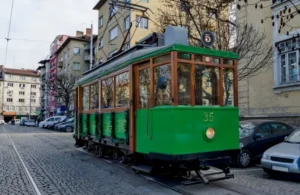Ottawa Relocations
Essential Tips for Moving to Ottawa – What You Need to Know Before You Move
Ottawa is a great place to live. It was ranked as Canada’s best city by Canadian Business.
This blog will guide you through the essential steps for moving to Ottawa. We’ll cover housing, work, and daily life in the city.
Key Takeaways
- Ottawa offers a mix of urban and natural living, with over 900 lakes nearby and four distinct seasons, making it ideal for outdoor enthusiasts.
- The city’s cost of living is lower than other major Canadian cities, with average monthly expenses around CAD 1,522 and a cost of living index of 83.67 out of 100.
- Ottawa hosts 35 major festivals annually, including the Canadian Tulip Festival and Winterlude, providing year-round cultural experiences for residents.
- The city boasts excellent healthcare access, with immediate OHIP coverage for eligible new residents and low wait times for medical services.
- Ottawa’s diverse economy offers job opportunities in government, technology, tourism, and manufacturing sectors, catering to various skill sets and career goals.
Understanding Ottawa's Key Features
Ottawa is a city of contrasts. It blends urban life with natural beauty.
Geography and Climate
Ottawa's four seasons paint a canvas of natural beauty and outdoor adventure.
- Labrosserealestate
Next, we’ll explore the cultural and lifestyle highlights that make Ottawa a unique place to live.
Cultural and Lifestyle Highlights
Evaluating Living Conditions in Ottawa
Ottawa offers a mix of urban and suburban living options. Its cost of living is lower than other major Canadian cities, making it an attractive choice for many.
Cost of Living Comparison
| Expense Category | Average Monthly Cost (CAD) |
|---|---|
| Rent (1-bedroom apartment) | 1,892 |
| Rent (2-bedroom apartment) | 2,075 |
| Utilities (Electricity, Heating, Water, Garbage) | 150 |
| Internet | 70 |
| Groceries | 400 |
| Transportation (Public Transit Pass) | 120 |
| Entertainment and Dining Out | 300 |
Housing Options: Renting vs. Buying
| Renting | Buying |
|---|---|
|
|
Housing Options: Renting vs. Buying
Ottawa's healthcare system is a model of efficiency and excellence.
- Labrosserealestate


Nick Labrosse
Read More About Nick
Navigating Daily Life in Ottawa
Daily life in Ottawa offers a blend of urban convenience and natural beauty. The city’s efficient public transport and extensive cycling paths make getting around a breeze.
Transportation and Commuting Options

Public Transit
Ottawa's OC Transpo provides extensive bus and light rail services. The O-Train, a light rail system, connects key areas of the city. Regular bus fares cost $3.65 as of 2021, making it a budget-friendly option for daily commutes.

Rapid Transit
The Transitway, a network of dedicated bus lanes, offers quick travel across the city. This system reduces traffic congestion and speeds up commute times for many residents.

Car-sharing
Communauto, Ottawa's car-sharing service, gives flexibility for those who need occasional access to a vehicle. This option can save money on car ownership costs while still providing transportation when needed.

Cycling
Ottawa boasts over 800 km of cycling paths, making it a bike-friendly city. Many roads have dedicated bike lanes, and there are numerous bike-sharing stations throughout the downtown core.

Walking
The city's compact layout makes walking a viable option for many errands and short commutes. Many neighbourhoods have high walk scores, promoting a healthy and eco-friendly lifestyle.

Taxis and Ride-sharing
Traditional taxi services and popular ride-sharing apps operate in Ottawa, offering door-to-door transportation options.

Airport Connections
Ottawa International Airport (YOW) links the city to domestic and international destinations. Public transit and shuttle services connect the airport to the city centre.

Inter-city Travel
VIA Rail provides train services to other major Canadian cities like Toronto and Montreal. Intercity buses also offer affordable travel options to nearby cities and towns.
Education System and Schools
- Public Education: Ottawa offers free schooling from kindergarten to grade 12. The city has four school boards, two English and two French, catering to diverse linguistic needs.
- Primary and Secondary Schools: Students can attend elementary schools (K-6), middle schools (7-8), and high schools (9-12). Many schools offer specialised programmes in arts, sports, or technology.
- Language Options: Schools provide instruction in English or French. French immersion programmes are available in English-language schools for non-native speakers.
- Private Schools: Ottawa has several private schools offering alternative curricula. These include Montessori, religious, and international baccalaureate programmes.
- Higher Education: The University of Ottawa and Carleton University are the city’s top tertiary institutions. They offer a wide range of undergraduate and postgraduate courses.
- College Education: Algonquin College provides vocational training and diploma courses. It’s known for its practical, job-oriented programmes.
- Special Education: Ottawa schools offer support for students with special needs. This includes individualised education plans and specialised teaching methods.
- Adult Education: The city provides numerous adult learning opportunities. These include language classes, skills training, and high school completion programmes.
- Extracurricular Activities: Schools in Ottawa offer various after-school activities. These range from sports teams to music clubs and academic competitions.
- School Transportation: The Ottawa Student Transportation Authority manages school bus services. It ensures safe transport for students across the city.
Local Employment Opportunities
Ottawa's diverse economy provides a wealth of career paths for newcomers and long-time residents alike, says Nick, a local real estate expert.
- Nick Labrosse
Preparing for the Move
Preparing for your move to Ottawa involves key steps. You’ll need to sort out paperwork, find a place to live, and set up basic services. Want to learn more about making your move smooth? Read on for our top tips.
Administrative Steps for Relocation
Moving to Ottawa involves several administrative steps. Proper planning and organisation can make the relocation process smoother. Here’s a list of essential administrative tasks to complete when moving to Ottawa:
- Update your driver’s licence: Visit a ServiceOntario centre to switch to an Ontario driver’s licence. Bring proof of identity, address, and driving experience.
- Register for Ontario Health Insurance Plan (OHIP): Apply at a ServiceOntario location. Present valid identification and proof of residency to obtain healthcare coverage.
- Notify important contacts: Inform banks, employers, schools, and government agencies of your new address. Set up mail forwarding with Canada Post.
- Transfer utilities: Arrange for disconnection at your old home and connection at your new Ottawa residence. This includes electricity, gas, water, and internet services.
- Update your vehicle registration: If bringing a car, register it in Ontario within 30 days of moving. Visit a ServiceOntario centre with necessary documents.
- Secure housing: Finalise your living arrangements before the move. Sign a lease agreement or complete property purchase paperwork.
- Enrol children in school: Contact the Ottawa-Carleton District School Board or Ottawa Catholic School Board to register your children in local schools.
- Obtain a new phone number: Consider getting an Ottawa area code (613 or 343) for your mobile or landline phone.
- Open a local bank account: Set up an account with a Canadian bank in Ottawa for easier financial transactions.
- Apply for a Social Insurance Number (SIN): If moving from another country, apply for a SIN at a Service Canada office for employment purposes.
- Register pets: License your dogs and cats with the City of Ottawa within 30 days of moving or acquiring a new pet.
- Update your address on official documents: Change your address on your passport, tax records, and other important documents.
- Find a family doctor: Register with Health Care Connect to find a local physician accepting new patients in Ottawa.
- Hire a reputable moving company: Book a reliable mover with experience in Ottawa relocations to transport your belongings safely.
- Create a moving checklist: Start early and list all tasks to avoid last-minute stress during the relocation process.
Finding Accommodation
- Set a budget: Determine how much you can afford for rent or mortgage payments. The average monthly rent for a 3-bedroom flat in Ottawa is $2,363.
- Choose a neighbourhood: Research different areas of Ottawa to find one that fits your lifestyle and needs. Consider factors like proximity to work, schools, and amenities.
- Decide on housing type: Ottawa has diverse housing options including single-family homes, townhouses, and condos. Pick the type that suits your family size and preferences.
- Use online platforms: Websites like Realtor.ca, Kijiji, and PadMapper are useful for searching available properties in Ottawa.
- Engage a local estate agent: A professional can provide valuable insights about the Ottawa housing market and help you find suitable options.
- Visit properties: Schedule viewings to assess potential homes in person. This helps you get a feel for the space and neighbourhood.
- Check rental regulations: Familiarise yourself with Ontario’s Residential Tenancies Act if you plan to rent.
- Consider short-term options: If you need time to find a permanent home, look into temporary accommodations like furnished flats or extended-stay hotels.
- Factor in utilities: Ask about included utilities when renting, or estimate costs for owned properties.
- Prepare necessary documents: Have references, credit reports, and proof of income ready for rental applications or mortgage pre-approval.
- Negotiate terms: Don’t hesitate to negotiate rent or purchase price, especially in less competitive areas of Ottawa.
- Read contracts carefully: Review all terms and conditions before signing a lease or purchase agreement.
- Plan for additional costs: Budget for moving expenses, furniture, and potential renovations or repairs.
Setting Up Essential Services
- Electricity and Gas: Contact Hydro Ottawa for electricity and Enbridge Gas for natural gas services. Set up accounts in your name and schedule connection dates.
- Water: Ottawa’s water service is managed by the city. Visit the City of Ottawa website to transfer or start new water service for your property.
- Internet and Phone: Research providers like Bell, Rogers, or TekSavvy. Compare packages and set up installation appointments before your move-in date.
- Waste Collection: Learn about Ottawa’s waste collection schedule and recycling programme. Order necessary bins from the city if not provided.
- Banking: Set up a local bank account if moving from another province or country. Major banks in Ottawa include RBC, TD, and Scotiabank.
- Healthcare: Register for Ontario Health Insurance Plan (OHIP) immediately. Coverage begins three months after establishing residency in Ontario.
- Driver’s Licence: Visit a ServiceOntario centre to exchange your out-of-province licence or apply for an Ontario one within 60 days of moving.
- Mail Forwarding: Set up mail forwarding with Canada Post to ensure you receive important documents at your new address.
- Emergency Services: Familiarise yourself with local emergency numbers and the locations of nearby hospitals and police stations.
- Home Insurance: Obtain quotes from various providers and secure a policy before moving in to protect your new home and belongings.


Nick Labrosse
Read More About Nick
Embracing Ottawa's Community
Ottawa’s community spirit shines through its many events and gatherings. You’ll find plenty of ways to connect with locals and enjoy the city’s vibrant culture.
Festivals and Local Events

- Canadian Tulip Festival: This springtime celebration showcases over a million tulips. Visitors enjoy stunning floral displays, live music, and art exhibits.
- Winterlude: This frosty festival transforms Ottawa into a winter wonderland. Attendees skate on the Rideau Canal, marvel at ice sculptures, and savour hot chocolate.
- Ottawa Fringe Festival: Theatre enthusiasts flock to this 10-day event. It features over 50 shows across multiple venues, spotlighting local and international talent.
- Capital Ukrainian Festival: This vibrant gathering celebrates Ukrainian culture. Guests indulge in traditional food, folk dancing, and handmade crafts.
- Christmas Lights Across Canada: The capital city sparkles during this festive event. Thousands of colourful lights illuminate Parliament Hill and nearby sites.
- Canada Day: On 1 July, Ottawa hosts the nation’s biggest birthday bash. Revellers enjoy parades, concerts, and a spectacular fireworks display.
- Ottawa International Jazz Festival: Music fans groove to world-class performances. The festival spans two weeks and features over 800 musicians.
- Ottawa International Animation Festival: This event draws animation enthusiasts from across the globe. It showcases cutting-edge films and industry talks.
- Bluesfest: One of North America’s largest music festivals takes place in Ottawa. Top artists from various genres perform over ten days.
- Tamarack Ottawa Race Weekend: Runners of all levels participate in this popular event. It includes a marathon, half-marathon, and family-friendly races.
Dining and Nightlife
Ottawa's nightlife caters to all tastes, from quiet pints to all-night parties.
- Nick Labrosse
Outdoor and Recreational Activities
- Rideau Canal Skateway: This 7.8 km ice rink is a winter marvel, stretching from Parliament Hill to Carleton University. Skaters can glide along the frozen canal, taking in city views and stopping at warming huts for hot cocoa.
- Cycling trails: Ottawa’s bike-friendly infrastructure includes over 800 km of paths. The Capital Pathway network connects major attractions, parks, and suburbs, making it easy to explore the city on two wheels.
- Gatineau Park: Just 15 minutes from downtown, this vast conservation area offers hiking, camping, and cross-country skiing. In autumn, the park’s maple trees burst into vibrant reds and golds, attracting leaf-peepers from far and wide.
- Water activities: With access to over 900 lakes, Ottawa is a paradise for water sports. Residents can enjoy kayaking, canoeing, and stand-up paddleboarding on the Ottawa River or nearby lakes.
- Urban parks: The city boasts numerous green spaces, including Major’s Hill Park and Confederation Park. These oases provide perfect spots for picnics, frisbee games, or simply lounging in the sun.
- Winter sports: Beyond skating, Ottawa offers excellent skiing and snowboarding at nearby resorts like Camp Fortune and Mont Cascades. Snowshoeing and cross-country skiing trails are also abundant within city limits.
- Golf courses: Golf enthusiasts can tee off at several top-notch courses, including the Marshes Golf Club and Eagle Creek Golf Club. These meticulously maintained greens offer challenging play for all skill levels.
- Rock climbing: Vertical adventures await at Calabogie Peaks and Mont Cascades, both within an hour’s drive of the city. These spots offer routes for beginners and seasoned climbers alike.
- Bird watching: The Mer Bleue Bog and the Fletcher Wildlife Garden are prime locations for spotting local and migratory birds. Bring binoculars to observe species like great blue herons and red-winged blackbirds.
- Farmers’ markets: While not strictly outdoor recreation, visiting local markets like ByWard Market or Lansdowne Park Farmers’ Market combines fresh air with fresh produce. It’s a great way to support local growers and enjoy the community atmosphere.
Conclusion: Is Moving to Ottawa Right for You?
FAQS
Ottawa is Canada’s capital city. It offers a high quality of life. The city is bilingual, using both French and English. Winters are cold with many fun activities. The cost of living is lower than in other major cities.
Research Ottawa movers online. Ask for recommendations from locals. Compare prices and services. Check reviews and ratings. Book early to ensure availability, especially during peak moving seasons.
Ottawa boasts excellent healthcare. It has good schools and universities. The city offers many job opportunities. It’s known for its safety and cleanliness. Ottawa has beautiful parks and outdoor spaces.
Ottawa has buses and a light rail system. The O-Train serves the city centre. Buses connect to suburbs. Monthly passes are available. The system is efficient and covers most areas.
French is helpful but not required. Many jobs prefer bilingual speakers. English is widely used. Learning some French can enhance your experience. It’s useful when visiting nearby Quebec.
Check different neighbourhoods like The Glebe or downtown Ottawa. Consider proximity to work or schools. Look at rental prices in various areas. Think about access to public transport. Remember, winter parking rules can affect your choice.
References
- https://www.shipit.co.uk/blog/guides/canada/expat-guide-to-ottawa.htm (2023-08-15)
- https://moving2canada.com/planning/destination-guides/ottawa/living-in-ottawa/ (2024-04-29)
- https://www.canadim.com/blog/cost-of-living-in-ottawa/ (2024-04-12)
- https://leverageedu.com/learn/cost-of-living-in-ottawa/
- https://ottawarealtyman.com/renting-vs-buying-in-ottawa/
- https://living-inottawa.ca/moving-to-ottawa-from-another-province/
- https://www.ncbi.nlm.nih.gov/pmc/articles/PMC8997438/
- https://www.ncbi.nlm.nih.gov/pmc/articles/PMC10198019/
- https://www.allaroundmoving.com/moving-to-ottawa-7-tips-to-keep-in-mind/ (2024-05-25)
- https://www.alliedvanlines.ca/moving/to/ottawa
- https://rubyxue.ca/blog/everything-you-need-to-know-about-moving-to-ottawa
- https://www.newpurveyors.com/new-purveyors-blog/the-ultimate-guide-to-relocation-moving-to-ottawa-ontario-canada
- https://www.movemate.ca/blog/navigating-moving-regulations-in-ottawa-what-you-need-to-know
- https://sunsetmoving.com/moving-to-ottawa/
- https://www.bigsteelbox.com/resources/things-to-know-before-moving-to-ottawa-ontario/ (2023-10-25)

